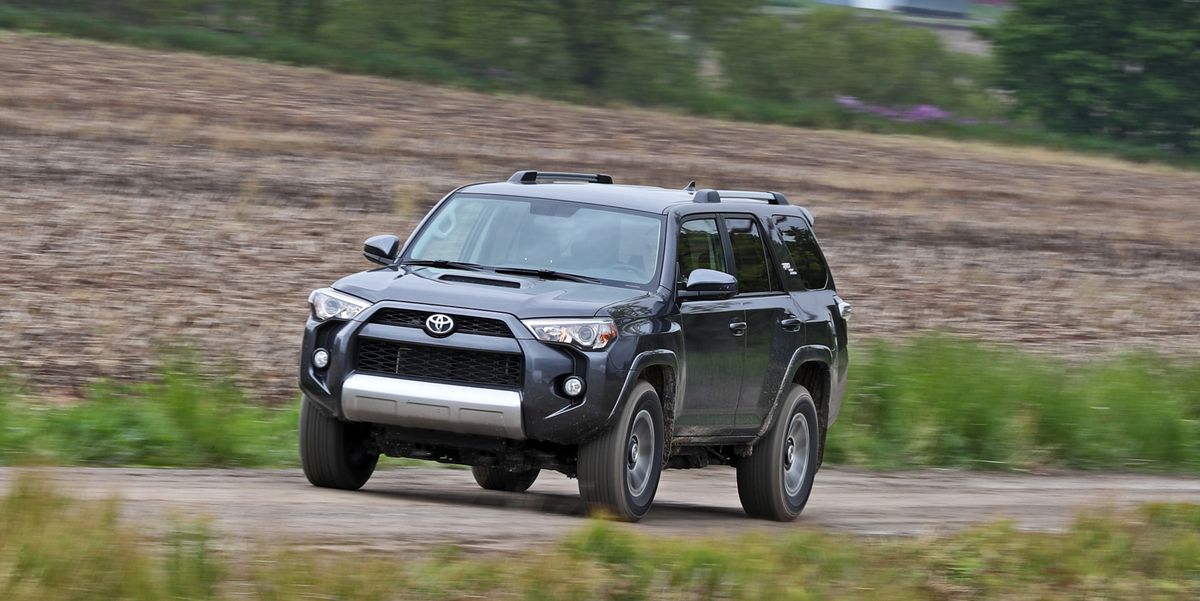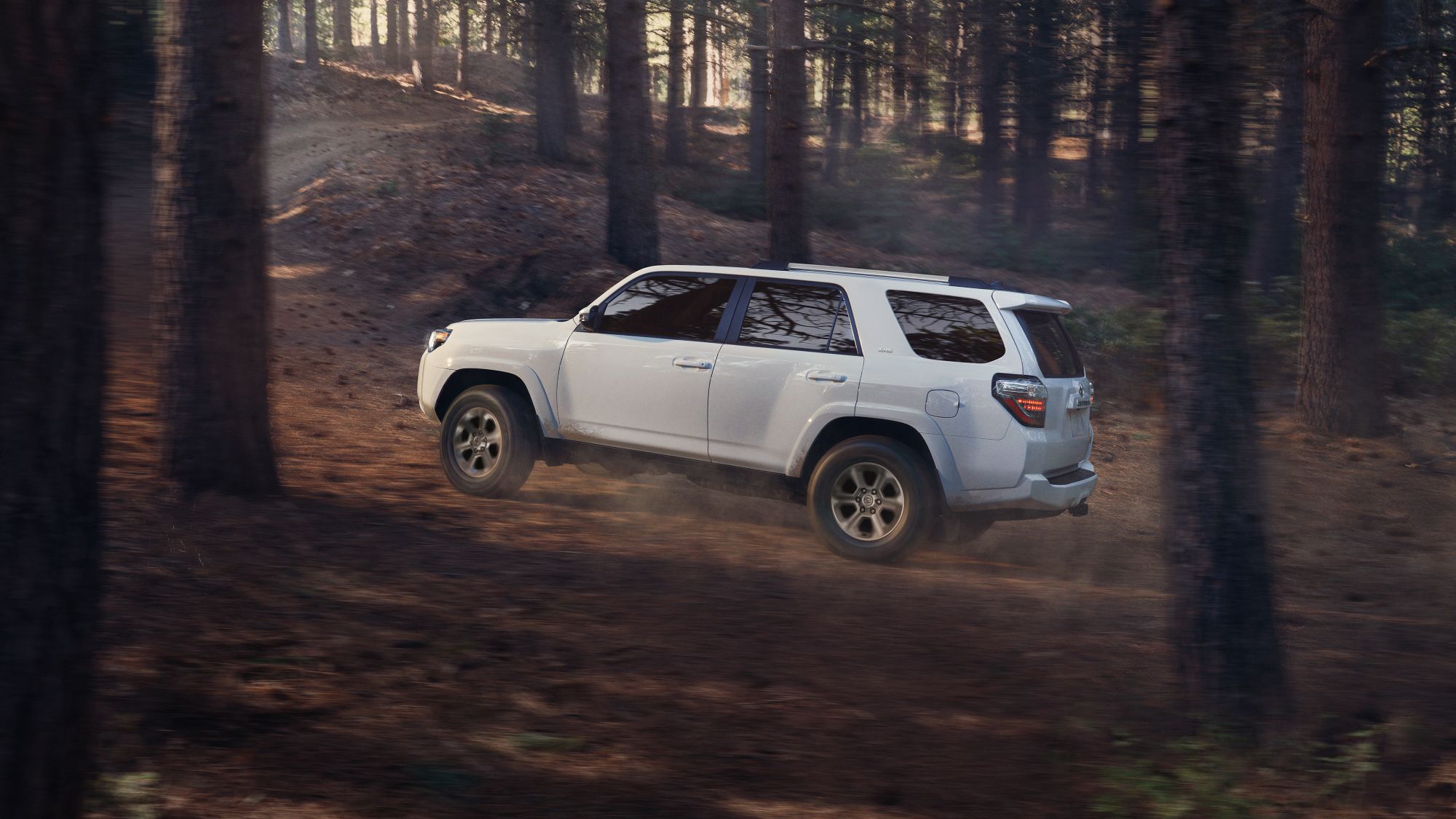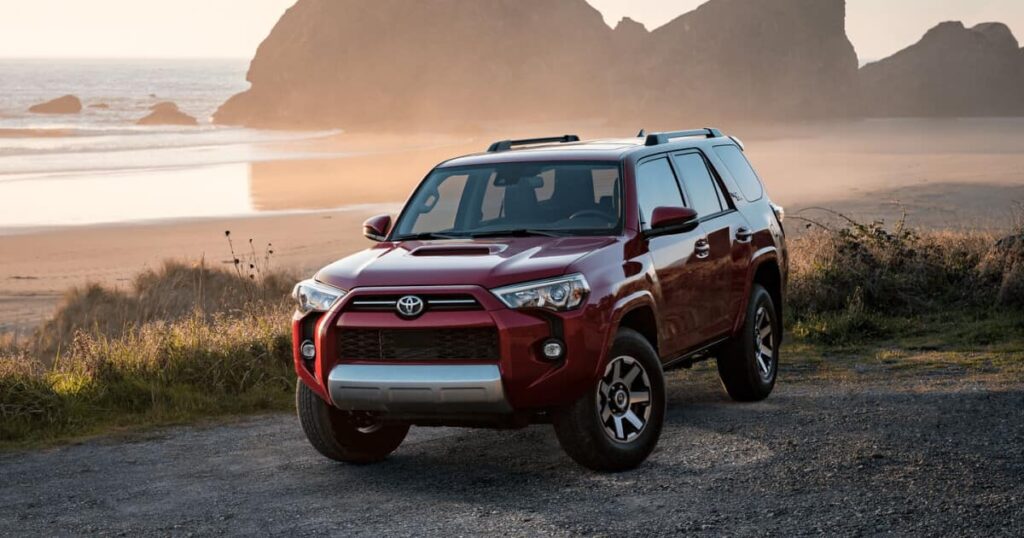Toyota 4Runner Safety Rating
How safe is the Toyota 4Runner? It’s a valid question to ask before buying a new (or used) car. And in the case of this Toyota SUV, you can expect the manufacturer to go the extra mile to ensure its passenger safety. But don’t take our word for it – let’s check the Toyota 4Runner safety rating from the top organizations to help you choose the right vehicle that gives you peace of mind and value for money.
Toyota 4Runner Safety Rating
Unlike other Toyota SUVs, the 4Runner failed to achieve the Top Safety Pick recognition. However, it performed well on most industry-standard crash tests.

First, the Toyota 4Runner safety rating from the NHTSA is 4 stars overall. When you break this rating down, the Toyota 4Runner safety rating for the overall frontal crash test is 4 stars, with the same rating on the front driver and front passenger side. While the front crash test failed to earn a perfect score, the side crash test rating is much better. The NHTSA side crash testing on the 4Runner earned it 5 stars overall, with a 5-star rating on the side barrier test, and 4 stars on the side pole rating.
One downside to the Toyota 4Runner is the rollover crash test, which scored 3 stars overall. It had a rollover risk rate of 24.60%.
Now, moving on to the Toyota 4Runner safety rating from the IIHS, it did not perform well enough to be awarded the Top Safety Pick. The IIHS crashworthiness test on the 2023 Toyota 4Runner produced mixed results. Starting with the small overlap front test on the driver’s side, the rating is Marginal overall. While the driver injury measures and driver restraints were rated as Good, the Poor rating on the structure and safety cage dragged the overall rating down.
On the other hand, the moderate overlap front test on the 4Runner was much better. It scored Good overall, and on the structure and safety cage, driver injury measures, and driver restraints. Meanwhile, it scored Good on all aspects of the original side crash testing from the IIHS. The roof strength, head restraints & seats were all rated as Good, but the child seat anchors were Marginal.
Do 4Runners flip easily?
Compared to lower and wider vehicles such as sedans and sports cars, taller and narrower vehicles tend to have their center of gravity higher off the ground. This high positioning of the center of gravity can affect the vehicle’s stability during sudden maneuvers and sharp turns. Thus, due to its design structure and weight distribution, the Toyota 4Runner has a higher risk of rolling over if put into a high-speed evasive maneuver.
Rollovers in Toyota 4Runners often occur when the vehicle is “tripped” (tire blowout, defective tire de-treads, etc.), causing drivers to abruptly overcorrect and swerve. The pendulum effect of quickly swinging the SUV can cause it to roll. This happens when the vehicle abruptly moves sideways, increasing the risk of the tire’s sidewalls deforming, causing the rim to hit the pavement, and trip the SUV into a roll. Rollovers are considered to be among the most lethal types of accidents.

Toyota 4Runner Maintenance Tips
Generally known for its robust build and durability, 4Runner is not exempted from general maintenance and occasional repairs. You should also be aware of the most common Toyota 4Runner recall issues. The maintenance and repairs for Toyota 4Runner’s first five to 10 years of service typically cost around $5,800, according to CarEdge. It beats the industry standard for popular SUVs by about $3,300. And with only around 16% of the chance of requiring major repairs in the first 10 years, the 4Runner is 5.42% better than the other vehicles in its segment. Moreover, the annual maintenance cost for this vehicle is considered average for its class.
Like most vehicles, the maintenance for 4Runner requires a combination of regular upkeep, timely repairs, and commitment to good vehicle health practices. This includes routine oil changes, tire rotations, brake pad replacements, and less frequent but often expensive procedures such as timing belt replacements (applicable for older models) or water pump service.
Keep Your Air Filters Clean, And Replace It Regularly
Engines work by drawing air and expelling gas, which means proper ventilation is crucial for optimal performance. While a dirty air filter may not automatically ruin your engine, it causes it to overwork, increasing the stress over time. The frequency of air filter replacement varies with your driving conditions, but a good rule of thumb is to replace it after an oil change.
Regular Tune-Up
Since 4Runner is not known for its fuel efficiency, it needs all the help it can get. One of the most important things you can do in this department is tune up your car’s ignition components, namely the spark plugs and coils. When these components are worn (and will be), they can negatively impact your engine performance and fuel consumption.
Upgrade Common Failure Points
Later models of the previous 4th generation V8 engine are known for their Secondary Injection System issues. You can prevent this problem by disabling the system, installing a bypass kit, and keeping other components as is.




